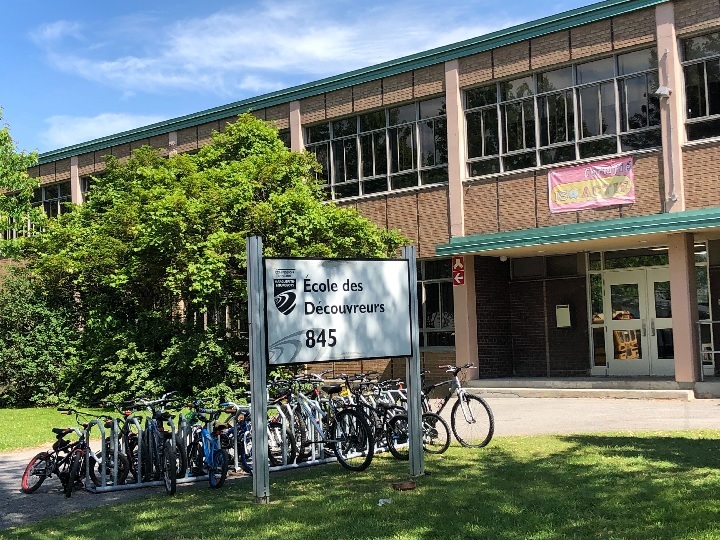Montreal public health officials have released a public report into the carbon monoxide poisoning at the Découvreurs elementary school in LaSalle that sent 35 children to hospital.

The Jan. 14 carbon monoxide leak was caused by a defect in the school’s natural gas heating system.
The city’s fire department said carbon monoxide levels in the hallways of the school at the time were as much as five times the level that usually triggers an evacuation.
The report published Tuesday said that as many as 124 students of the 265 present at school that day reported developing symptoms in the days following the incident. Those symptoms included headaches, hearing impairments such as tinnitus and anxiety.
Eight weeks after exposure, 24 of the students continued to show symptoms. They were taken into the care of the medical specialists, and the health authority did not follow up on the cases.
WATCH: Some LaSalle students still suffering after carbon monoxide poisoning at school

Report co-author Maxime Roy said that while it is unlikely the students will suffer permanent effects, it couldn’t be ruled out.
“All I can say is most kids will get better over time,” he said. “In the scientific literature there are some cases of permanent symptoms, but they were in kids that were almost dead when they showed up in the hospital. So that’s very different from the kids at this school.”
According to Roy, there are two lines of defence when it comes to protecting yourself whenever there is a source of carbon monoxide in a building, be it from a furnace, water boiler or elsewhere.
“Proper maintenance, regular maintenance is the first line of defence,” he said. “The second line of defence if you have a source of carbon monoxide: you should have a carbon monoxide detector.”
He added that for bigger institutions like schools, it would make sense to connect the detectors to a monitoring system — the risk being that a carbon monoxide detector going off in the furnace room of building might not be heard.
“What’s the point of having that line of defence if no one is going to hear it and no one is going to be able to do something about it?” he asked. “In those settings, it is better to have that alarm system hooked up to a central monitoring system, just like an intrusion alarm or smoke alarms.”
But for Roy, the recommendations coming out of the report shouldn’t come as a surprise.
“The recommendations were already known,” he said.
For the past 10 years, Montreal’s public health department has been sending out annual reminders to all school boards and private schools on the island about the importance regularly maintaining and inspecting heating systems using fossil fuels, as well as the installation of carbon monoxide detectors.
In 2017, the department even conducted a survey of the school boards and private schools in order to provide support and information tailored to their needs.
The results of that survey showed that 94 per cent of school establishments had at least one potential source of carbon monoxide inside the building, but only 10 per had a certified carbon monoxide detector. Another 20 per cent of buildings didn’t have regular inspection and maintenance programs in place.
Information provided by the Marguerite-Bourgeys school board indicates the Découvreurs school did have such a program in place. It is not known, however, whether the school had a carbon monoxide detector.
- What is a halal mortgage? How interest-free home financing works in Canada
- Ontario doctors offer solutions to help address shortage of family physicians
- Capital gains changes are ‘really fair,’ Freeland says, as doctors cry foul
- LGBTQ2 rallies will be held across Canada next month. Here’s what to know
In its report, the public health department said it wasn’t a detector that warned emergency services of a problem at the school, but rather the onset of symptoms.
Following the Jan. 14 leak, Quebec’s education minister issued a directive requiring all schools and buildings where combustible fuel is used to install carbon monoxide detectors.
While Tuesday’s report is public, it was sent out to all Découvreurs parents, the school, the school board and the ministers of health and education.
— With files from the Canadian Press




Comments